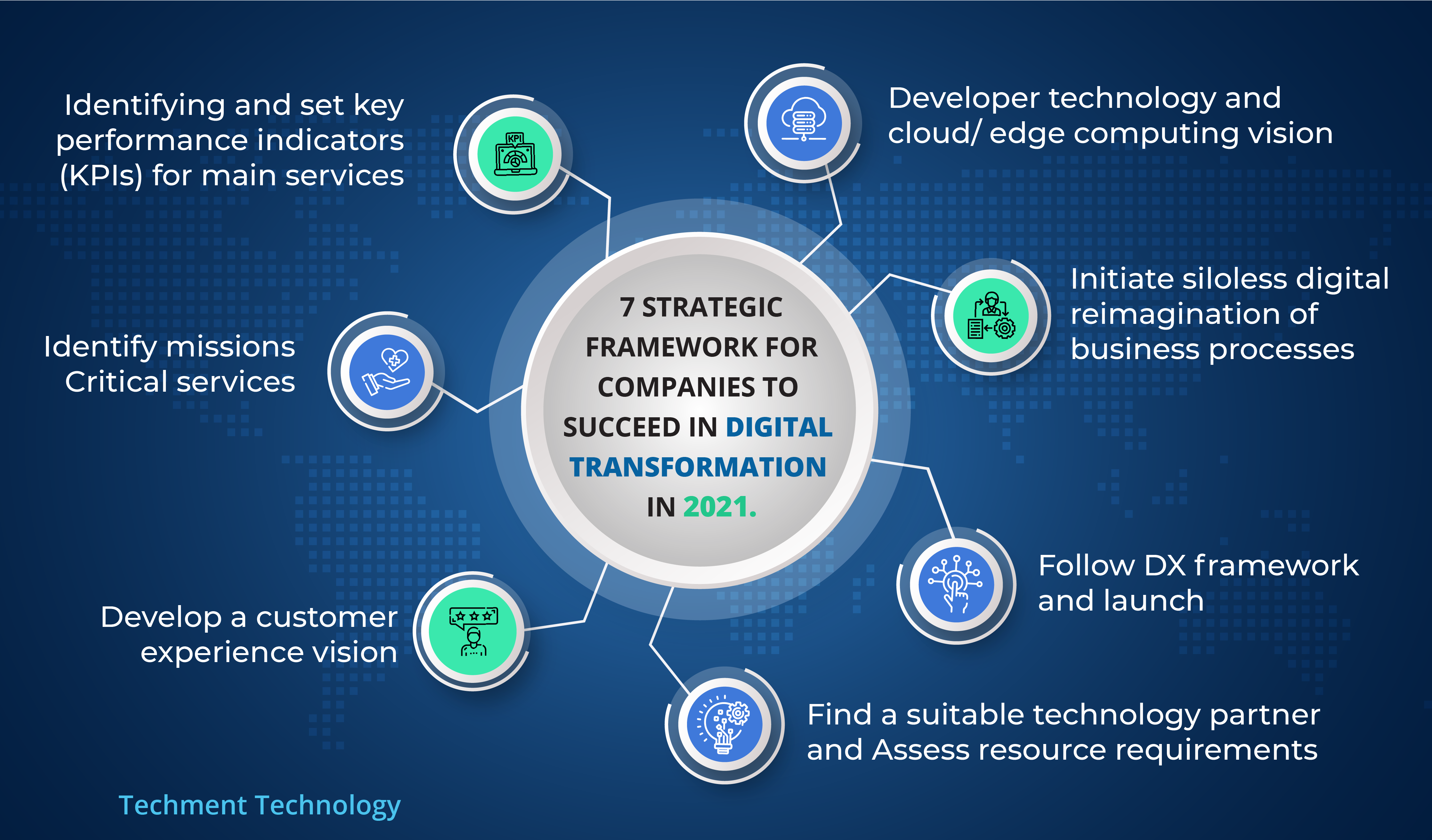| Traditional Business | AI-Powered Business | |
|---|---|---|
| Decision-Making | Relies on human expertise and intuition | Utilizes data-driven insights and predictive analytics |
| Efficiency | Limited by human capacity | Automates tasks, freeing up resources |
| Customer Engagement | Transactional and impersonal | Personalized and proactive interactions |
| Innovation | Incremental and reactive | Accelerated and disruptive |
Main Article Topics:
FAQ
This section provides answers to frequently asked questions regarding the use of AI in business transformation. Explore the topics below to gain a better understanding of AI and its applications.

The importance of personal agility in the changing world of work HRD - Source www.hrdconnect.com
Question 1: How can AI help my business?
AI can enhance business operations by automating tasks, improving decision-making, personalizing customer experiences, and optimizing supply chains. Unlocking The Power Of AI For Business Transformation: A Comprehensive Guide
Question 2: What industries are most suitable for AI adoption?
AI can benefit almost any industry. It is particularly effective in sectors such as healthcare, finance, manufacturing, retail, and transportation.
Question 3: How can I implement AI in my business?
AI implementation involves gathering data, identifying suitable use cases, selecting the right AI models, and integrating AI into existing systems.
Question 4: What are the potential challenges of using AI?
Ethical concerns, data privacy issues, and the need for skilled professionals are some of the challenges associated with AI adoption.
Question 5: How can I measure the ROI of AI investments?
Quantifying the return on investment for AI initiatives requires establishing clear metrics, tracking key performance indicators, and conducting cost-benefit analyses.
Question 6: What is the future of AI in business?
AI is expected to continue evolving and playing a more prominent role in business transformation. Advancements in machine learning, deep learning, and edge computing will drive innovation and unlock new possibilities.
Understanding AI and its potential can empower businesses to make informed decisions about AI adoption. By leveraging AI strategically, organizations can drive efficiency, innovation, and growth.
To learn more about AI in business, explore the comprehensive guide at the link provided.
Tips
To successfully leverage AI, it is crucial to adopt a strategic approach and consider the following tips:
Tip 1: Define Clear Objectives and Alignment
Identify specific business goals AI will address. Ensure alignment with the organization's overall strategy.
Tip 2: Build a Strong Data Foundation
Collect, clean, and prepare high-quality data to train and optimize AI models effectively.
Tip 3: Choose Suitable AI Technologies
Explore different AI approaches (e.g., machine learning, deep learning) and select the most appropriate ones for your business needs.
Tip 4: Implement Ethical and Responsible AI
Establish ethical guidelines to ensure that AI systems are fair, transparent, and used responsibly.
Tip 5: Foster Collaboration and Cross-Functional Integration
Encourage collaboration between business leaders, data scientists, and other stakeholders to drive successful AI implementation.
Tip 6: Continuously Monitor and Evaluate
Establish metrics to track performance and regularly evaluate AI systems to identify areas for improvement.
Tip 7: Embrace an Agile Mindset
Adopt an iterative development approach, allowing for flexibility and quick adaptations to changing business needs.
Tip 8: Invest in AI Education and Training
Upskill employees to enhance AI literacy and empower them to leverage AI effectively.
By following these tips, organizations can unlock the transformative potential of AI and foster data-driven decision-making, streamline operations, and drive business growth.
Unlocking The Power Of AI For Business Transformation: A Comprehensive Guide
Digital transformation is revolutionizing businesses, and Artificial Intelligence (AI) is at the forefront of this change. AI holds immense power to transform various business aspects, driving efficiency, innovation, and growth. This guide presents a comprehensive exploration of the essential aspects that businesses must consider to harness the full potential of AI for successful transformation.
- Data Foundation: AI algorithms require vast amounts of high-quality data to learn and make accurate predictions.
- Algorithms and Models: Different AI algorithms are tailored to specific business needs, from supervised learning for predictive analytics to unsupervised learning for pattern recognition.
- Infrastructure and Compute: AI requires significant computational power, and businesses must invest in cloud or on-premises infrastructure to support AI workloads.
- Integration and Automation: AI systems must be seamlessly integrated with existing business processes to automate tasks and enhance decision-making.
- Security and Compliance: AI systems handle sensitive data, necessitating robust security measures to protect against breaches and ensure compliance with regulations.
- AI Ethics and Governance: Businesses must establish ethical guidelines and governance frameworks to ensure AI is used responsibly and aligns with organizational values.
These aspects are interconnected and vital for a successful AI transformation journey. By leveraging data effectively, selecting the right algorithms, investing in infrastructure, ensuring integration and automation, prioritizing security, and establishing ethical frameworks, businesses can unlock the full power of AI to drive innovation, optimize operations, and achieve sustainable growth.

7 Steps To A Successful Digital Transformation Strategy in 2021 - Techment - Source www.techment.com
Unlocking The Power Of AI For Business Transformation: A Comprehensive Guide
The comprehensive guide on "Unlocking The Power Of AI For Business Transformation" provides a remarkable connection between the field of business and technological advancements. With the growing influence of Artificial Intelligence (AI), businesses have a novel opportunity to reshape their operations, optimize productivity, and create new revenue streams.

FindContent | Sniply - Source go.advisorflex.com
Integration of AI into business strategies is pivotal for staying competitive and driving innovation. AI's ability to analyze vast amounts of data, identify patterns, and make predictions enable organizations to gain a comprehensive understanding of their customers, market trends, and operational inefficiencies. This empowers businesses to tailor products and services, target specific customer segments, and optimize supply chains, resulting in enhanced customer satisfaction and increased profitability.
Incorporating AI technologies like machine learning, natural language processing, and computer vision unleashes a wide range of practical applications. AI-powered chatbots provide instant customer support, enhancing the customer experience, while predictive analytics aid in forecasting demand and optimizing inventory levels, minimizing waste and maximizing efficiency. Furthermore, AI algorithms can automate repetitive tasks, freeing up human employees to focus on more strategic and creative endeavors.
Conclusion
The comprehensive guide on "Unlocking The Power Of AI For Business Transformation" underscores the pivotal role of Artificial Intelligence in modern-day business operations. By leveraging AI's capabilities, organizations can gain a competitive edge, drive innovation, and achieve unprecedented efficiency. As technology continues to advance, the integration of AI will become even more crucial for businesses seeking to thrive and flourish in the digital era.
Embracing AI empowers businesses to make data-driven decisions, automate tasks, and uncover new opportunities for growth. The potential for AI in business transformation is vast, and organizations that recognize its potential and invest in AI technologies will be well-positioned to succeed in the digital economy.